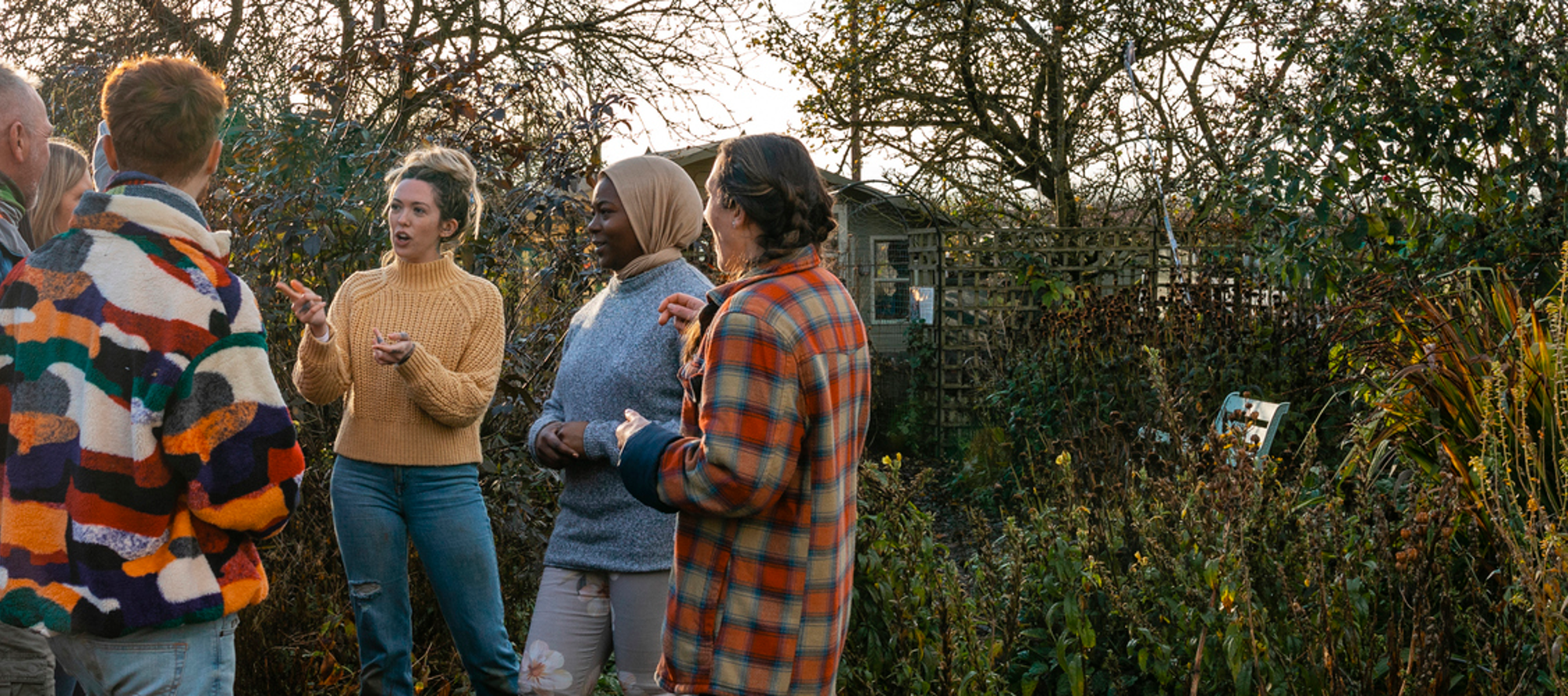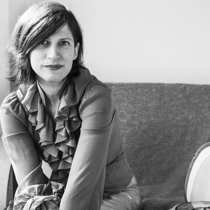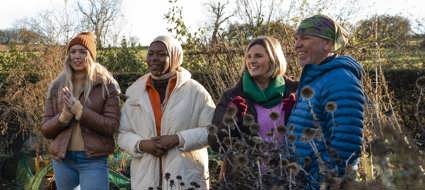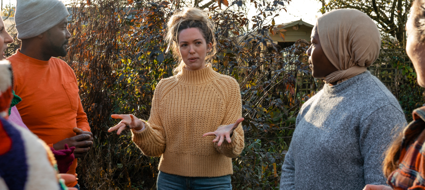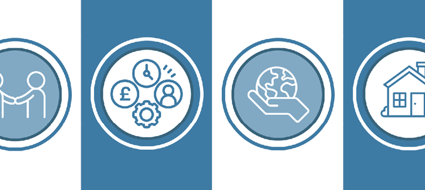A brighter social care future, an open access Evidence Review co-produced by Research in Practice and Social Care Future, has just been published.
Over 18 months or so, groups of people with lived experience of adult social care got together to discuss the evidence related to five key areas:
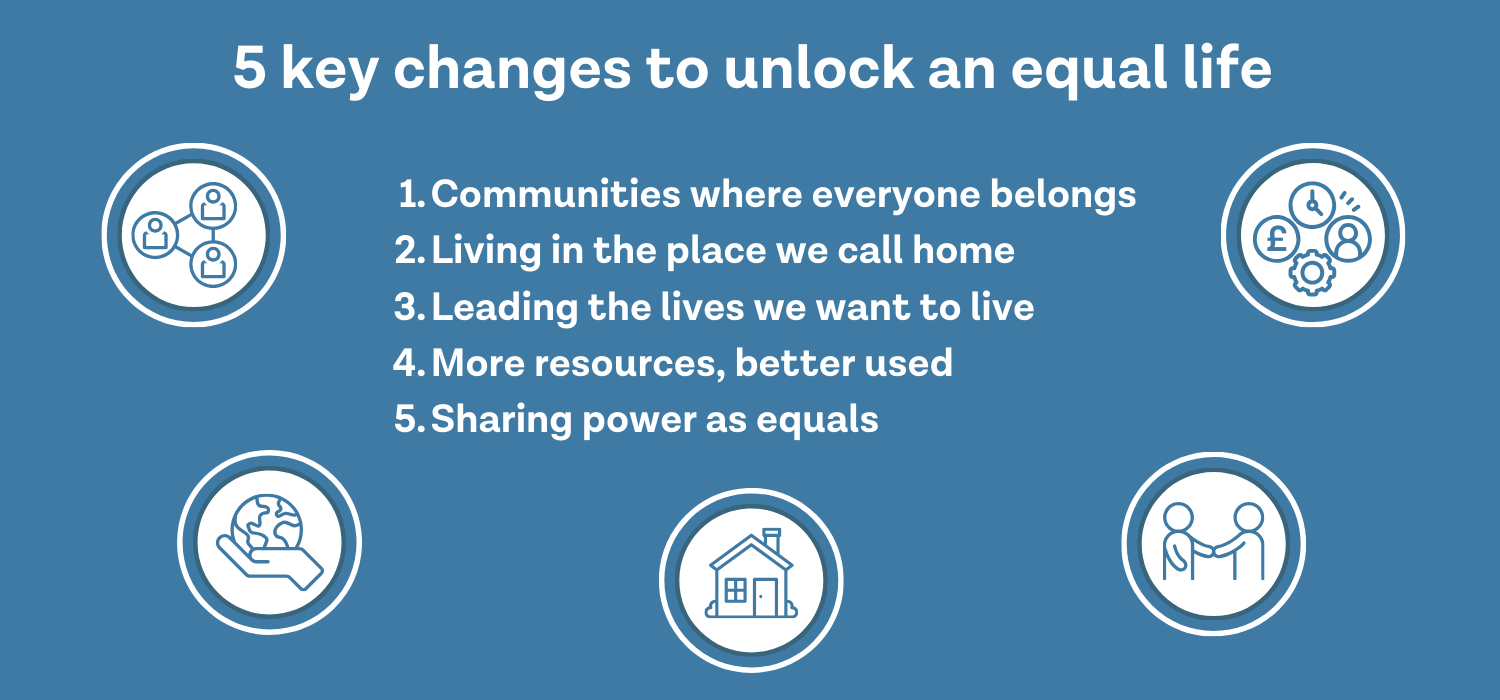
People were paid for their time (an important principle of co-production) and the key areas are based on Social Care Future’s ‘Five key changes to unlock an equal life’.
I’m proud to have been part of the co-production groups as the only ‘professional’ on the project. It was my role to co-ordinate the groups and facilitate discussion (although, once the groups got chatting the main ‘facilitation’ was keeping to time!). I also took notes during the meetings, and then finally brought the material together.
The resource is both a wonderful testament to everyone’s hard work and a call to action for a change in social care. It contains dozens of actions, small and large, that everyone who works in adult social care can take – from direct practice to service design. What’s more, all these actions are a unique and powerful partnership between research messages and people’s own experiences.
Now feels like a good time to reflect on the co-production process itself, particularly thinking about some of the emotions and relationship-based work it involved. I think that these aspects of co-production are under-discussed but are equal in importance to co-productions more formal qualities (for more on these structures and organisational aspects, Research in Practice have a briefing, Co-production and strengths-based practice).
One of our themes in the Evidence Review is ‘sharing power as equals’ and this is a good metaphor when thinking about co-production. For the first time in my life, I was a minority voice in a professional context. In our discussion groups, I was the only one who did not have lived experience of social care. All my knowledge came from practice and research. This in itself flipped the usual power imbalance and, the deeper I got into the project, the more ridiculous it seemed to me that the power so often lay, unquestioned, with professionals. I know that I had taken that power dynamic for granted in the past; and it was bracing to realise how different things could be.
I heard so many examples in the project of people having their knowledge and opinions undermined, just because their lived experience viewpoint was seen as less valid than the professional one. This seemed to happen no matter how well-informed people were. In many cases, especially in areas like the law and human rights, group members knew much more than many professionals.
There are so many cracking quotes from the people on this project (direct quotes pepper the Evidence Review, along with video and audio material), and one particularly stands out to me. One participant, Iggy Patel said that:
The qualities, strengths and intelligence of disabled people need to be recognised alongside their life experiences.
For me, this gets to the heart of co-production. It’s no good expecting co-production to fit into just one category. Be prepared for surprising, intense, stimulating discussions; it’s not only through the lens of someone’s circumstance that their personalities and opinions are formed.
For co-production magic to happen, listening and giving adequate time are essential. These need to sit alongside an open mind and a willingness to share yourself if you feel you have something to say! While I haven’t had direct experience of drawing on social care, many who work in the sector have; we all have intersecting identities and wear different hats at different times. It’s important to consider all experiences equally, regardless of the role that has brought people to co-production in the first place.
I remember well, during the ‘Living in the place we call home’ group, the first time I knew I had something personal to contribute. We were discussing the psychological impact of long-term renting and, as someone who grew up in a privately-rented house and has rented through most of my adulthood too, I knew that I could speak from my own experience. I reflected on the insecurities, and the normalised sense of shiftlessness that private renting can bring.
If co-production is to truly work, I think, it needs headspace and support. While the group discussions were usually positive and action-focused, people had been through really tough times in their lives, and this naturally had an emotional impact on me when people shared loss, injustices and trauma. In addition, the project took place during the UK’s cost-of-living-crisis, and we were living through real-time hardship. All this made it important for me to decompress after group meetings.
Finally, don’t underestimate the joy and support co-production can bring, too. I recall that, during one meeting, I confided to the group that I was feeling a bit overwhelmed; that the themes seemed gigantic, that it felt so difficult to pull it all together. Dean Thomas, of the ‘Sharing power as equals’ group responded that we needed to:
embrace it… instead of putting things in little boxes, it feels right that we should try to make it all-encompassing.
He was absolutely right and, from that point on, I never felt overwhelmed in the same way again; just pride that I was part of such a wide-ranging, original project.
